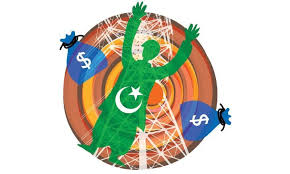Islamabad, Feb 24: The federal government is in negotiations with banks to secure a Rs. 1.24 trillion loan as part of its strategy to reduce the country’s mounting circular debt, which currently stands at Rs. 2.381 trillion. With the discount rate falling from 22 percent to 12 percent, authorities aim to take advantage of the more favorable financial conditions and secure the loan at an interest rate of 6-7 percent for a seven-year period. However, banks are reportedly proposing a KIBOR+1 rate, which could impact the feasibility of the agreement.
To facilitate repayment, the government plans to utilize the existing Rs. 3.23 per unit debt servicing surcharge on electricity tariffs. This approach aligns with broader efforts to stabilize the power sector and address financial bottlenecks that have long plagued electricity distribution.
So far, the government has managed to settle Rs. 720 billion of the circular debt, including payments of Rs. 450 billion to Independent Power Producers (IPPs) and Rs. 286 billion to the Water and Power Development Authority (WAPDA). The reduction in circular debt is seen as a crucial step toward improving the financial health of the power sector and enabling the privatization of power distribution companies (DISCOs), a move that could enhance efficiency and attract private investment.
As of November 2024, the circular debt had slightly declined from Rs. 2.393 trillion in June to Rs. 2.381 trillion. Payables to power producers stood at Rs. 1.608 trillion, while Rs. 683 billion remained parked in the Power Holding Private Company (PHPL). Additionally, pending subsidies were recorded at Rs. 5 billion.
A significant portion of expenditures in the power sector went toward interest payments and obligations to IPPs, with Rs. 70 billion allocated for these purposes. However, Rs. 31 billion remained outstanding under quarterly and fuel charge adjustments.
The government’s plan to restructure the power sector’s financial obligations through this loan agreement is expected to provide temporary relief. However, experts believe that long-term structural reforms, including improved governance of DISCOs and a shift towards sustainable energy solutions, are necessary to permanently resolve Pakistan’s chronic circular debt crisis.









